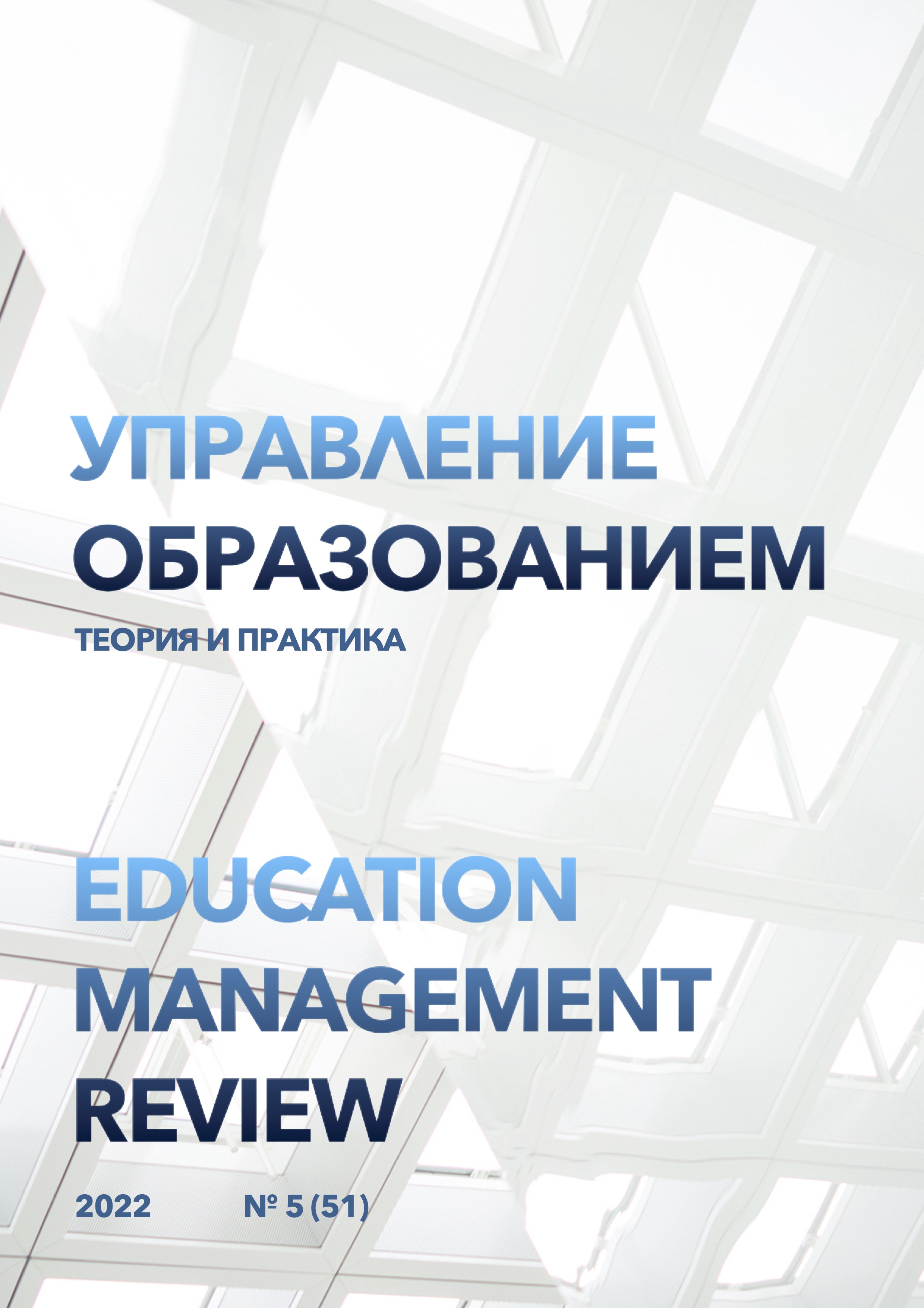Formation of prerequisites for the integrated development of the ecological imperative in education
DOI:
https://doi.org/10.25726/n4255-4923-3681-rKeywords:
ecology, education, opportunity, structure, developmentAbstract
The introduction of a competence-based approach into the higher school system in the Russian Federation is now an urgent problem of domestic education and requires the close attention of the pedagogical community. A number of regulatory documents have established a list of key (vital) competencies that a future specialist should possess who is able to professionally perform the tasks set in the conditions of the development of a post industrial society. Unfortunately, environmental competence was not included in this list, however, with the growing ecological crisis in our country and the whole world, the training of ecologically educated, competent specialists in the field of conservation and environmental protection is relevant and in demand. Despite the environmental challenges of our time, the study of the essence and structure of environmental competence of future teachers as a component of their professional training is becoming a priority area of modern higher education. To understand the essence of the structural components of an individual's environmental competence, it is important to highlight its functions.
References
Barbosa, M. (2013). Education and development under the imperative of growth: Reframing from civil society [A Educação e o Desenvolvimento sob o Imperativo do Crescimento: Ressignificação a partir da Sociedade Civil]. Revista Lusofona de Educacao, (23), 13–30.
Chen, X., Li, F., Li, X., Hu, Y., & Wang, Y. (2020). Mapping ecological space quality changes for ecological management: A case study in the Pearl River Delta urban agglomeration, China. Journal of Environmental Management, 267. https://doi.org/10.1016/j.jenvman.2020.110658
Fien, J. (1995). Teaching for a Sustainable World: The Environmental and Development Education Project for Teacher Education. Environmental Education Research, 1(1), 21–33. https://doi.org/10.1080/1350462950010102
Grishaeva, Y. M., Tkacheva, Z. N., Medvedkov, A. A., Volgin, A. V, Krylov, P. M., & Litvinenko, V. V. (2017). Ecological aspects in the focus of professional education: Substantive and methodological discourse. Man in India, 97(14), 1–9.
Jenkins, T. (2013). The transformative imperative: The National Peace Academy as an emergent framework for comprehensive peace education. Journal of Peace Education, 10(2), 172–196. https://doi.org/10.1080/17400201.2013.790251
Jukić, R. (2011). Ecological question as an educational need [Die ökologische frage als erziehungs-und bildungsbedürfnis]. Socijalna Ekologija, 20(3), 267–286.
Jukić, R., Kakuk, S., & Ham, E. (2021). From the Idea of Sustainability / Sustainable Development to Education Sustainable Development in Schools [Od ideje odrzivosti / odrzivoga razvoja do odgoja i obrazovanja za odrzivi razvoj u školama]. Diacovensia, 29(3), 375–393. https://doi.org/10.31823/d.29.3.5
Lawson, G. (2003). Ecological landscape planning: A gaming approach in education. Landscape Research, 28(2), 217–223. https://doi.org/10.1080/0142639032000070210
Schweyer, L. (2021). Integrating sustainable development into initial nursing education [Intégrer le développement durable dans la formation initiale infirmière]. Revue de l’Infirmiere, 70(272), 22–24. https://doi.org/10.1016/j.revinf.2021.04.006
Smith, G. A., & Williams, D. R. (1999). Ecological Education: Extending the Definition of Environmental Education. Australian Journal of Environmental Education, 15(2), 139–146. https://doi.org/10.1017/S0814062600002718
Sonetti, G., Brown, M., & Naboni, E. (2019). About the triggering of UN sustainable development goals and regenerative sustainability in higher education. Sustainability (Switzerland), 11(1). https://doi.org/10.3390/su11010254
Sovhira, S., & Dushechkina, N. (2018). Methodological approaches to pupils’ ecological culture education. Journal of Landscape Ecology(Czech Republic), 11(1), 61–72. https://doi.org/10.2478/jlecol-2018-0001
Wang, S., Zheng, C., Du, J., & Cao, L. (2020). Research on the physical education teaching model and its evolution trend of colleges and universities in the internet environment based on ecological sports principles. Fresenius Environmental Bulletin, 29(12), 10553–10559.
Wrigley, W. J., & Emmerson, S. B. (2013). Ecological development and validation of a music performance rating scale for five instrument families. Psychology of Music, 41(1), 97–118. https://doi.org/10.1177/0305735611418552
Zheng, N., Li, S., Wang, Y., Huang, Y., Bartoccid, P., Fantozzid, F., … Li, J. (2021). Research on low-carbon campus based on ecological footprint evaluation and machine learning: A case study in China. Journal of Cleaner Production, 323. https://doi.org/10.1016/j.jclepro.2021.129181




